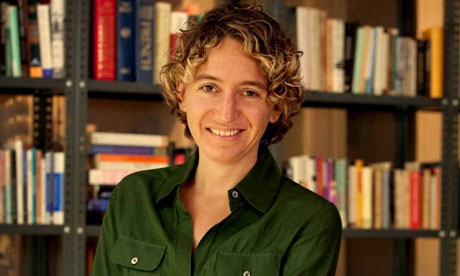
Why did you decide to write a book about error?
The honest answer to this question is so unsatisfying that I'm always tempted to make up a better one, but all I can say is that one day in late 2004, I suddenly registered wrongness, in the same way that sometimes you learn a new word and then hear it twice more that afternoon. It struck me as a kind of missing piece – an unusually rich, weird, interesting, influential category of human experience, which had somehow gone largely unexplored. I'd estimate that I went from not planning to write a book to knowing exactly what I wanted to write about in under two minutes.
Was it your first attempt at writing a book?
Yes (if you don't count the dreadful Tolkien-knockoff trilogy I wrote when I was 10). I can recall several editors mentioning to me early on that wrongness was an "unusual" topic for a first book. A year or so into the project, it finally dawned on me that by "unusual", they meant "insane". But I didn't think twice. I didn't think once. In a way, that was the saving grace of the whole process: from the beginning, I had absolute faith in the idea.
What came first?
Not the beginning, to my surprise. I only got going when I stopped trying to write the opening and began writing about belief. I thought it was going to be the second chapter of the book. Wrong again: it turned out to be fifth. But it gave me the foothold I needed to find my way in.
What were the hardest bits?
By far the hardest part was figuring out the overall structure of the book. Books about people or events have a certain natural infrastructure; at a minimum, you've got chronology on your side. But books about ideas don't give you any hint about how to organise them. That was the challenge I always returned to: how do you find the narrative arc of an idea?
How did you research the book?
I started out by essentially designing and working my way through a kind of survey course: Wrongness 101. Once I was reasonably grounded in that material, I started doing my own reporting, and also doing more intensive, less couch-friendly research.
How did it come to be published?
That was the one easy part, largely because I was phenomenally lucky. I had a terrific agent, and I had terrific timing. The book sold on proposal in early 2006, before the global financial crisis, back when it felt like there was still real willingness to take a gamble on an unknown author. The political context probably helped, too – the WMDs, the 2004 elections, the Iraq and Afghanistan wars. Also, about a week before my proposal went out, the news broke that A Million Little Pieces, James Frey's bestselling, Oprah-anointed "memoir", was largely fabricated. All in all, there was something of a wrongness zeitgeist, and I think I benefited from that.
What are you most pleased with?
I love the fact that there's a footnote about palinodes on the fifth page of the book. I love that Hamlet and John Kerry co-star in the same chapter.
What would you do differently/better next time?
One of the best pieces of advice I ever got was that I'd be ready to start writing it when I could outline it on a Post-It note. I suspect that whatever I write next will be significantly more story-driven. There are plenty of stories in this book, but it's fundamentally propelled forward by an idea.
Who were your literary models?
The first writer I could identify by style – this is when I was maybe eight or nine years old – was Pauline Kael. In fact, it was Kael who taught me that style existed: that we can each put our own imprimatur on language. I also learned from her that no subject on earth is beneath scrutiny, or beneath outstanding writing. As an early model, she might have been the best thing that could have happened to me. I've also been interested for a long time in writers who are exceptionally acute observers of their own minds: Augustine, Montaigne, Freud, William James. Of those, James's influence – intellectual if not literary – is probably the most evident in this book.

